Lies can quietly destroy even the strongest relationships. When trust is broken, the person left behind often feels lost and betrayed, and their entire world has been turned upside down.
For instance, a young husband’s life fell apart when a medical emergency revealed his 4-year-old son isn’t biologically his. Now, he’s heartbroken and torn between leaving his wife and fighting to stay in his son’s life, even though they share no blood. Keep reading to see how one truth has shattered his entire world.
It can be an incredibly stressful time for parents when their child has a medical emergency

Image credits: Wavebreakmedia (not the actual photo)
A man shared how his son’s sudden health crisis led to a shocking revelation about his family
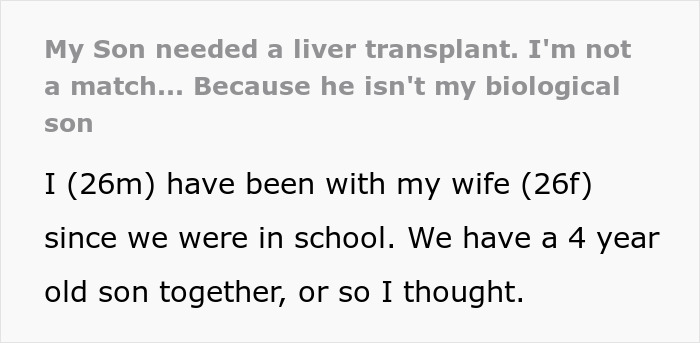
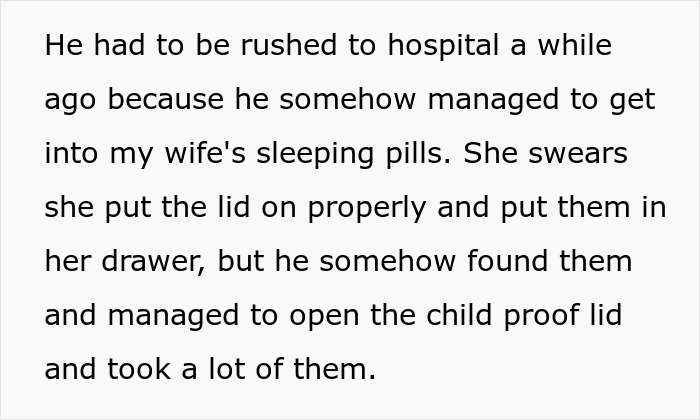
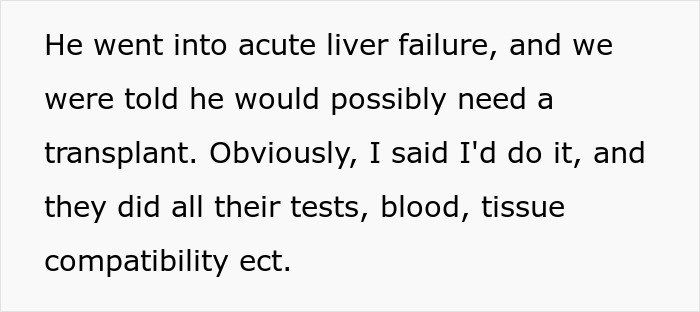
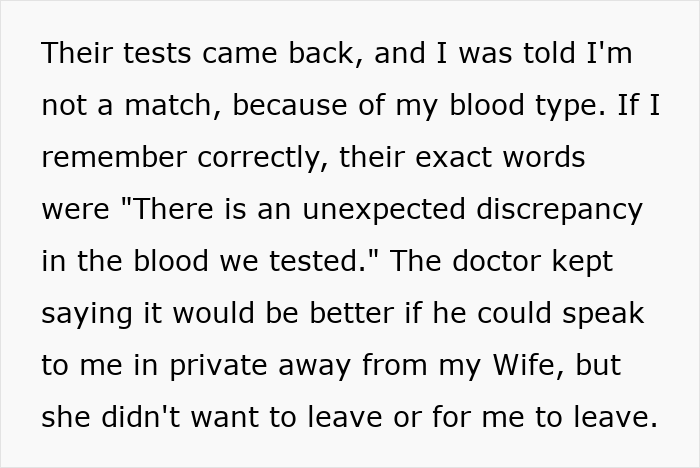
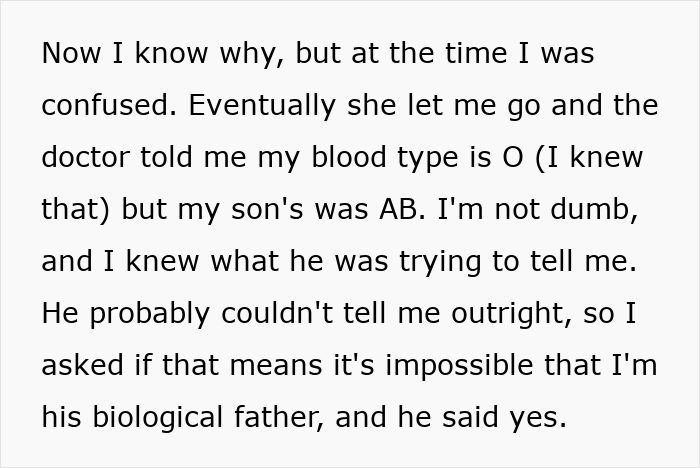

Image credits: laddawanpunna (not the actual photo)
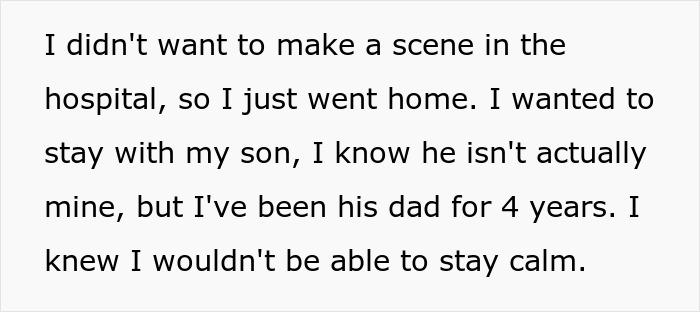
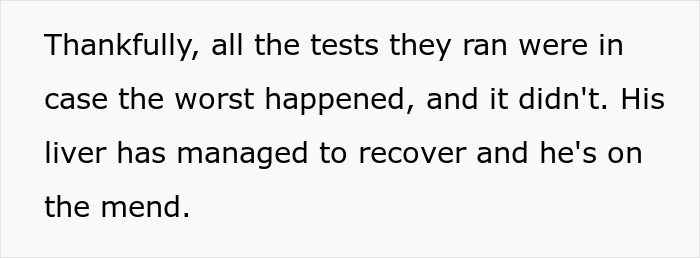

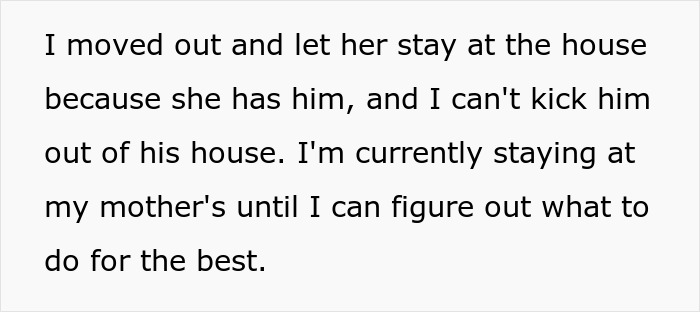
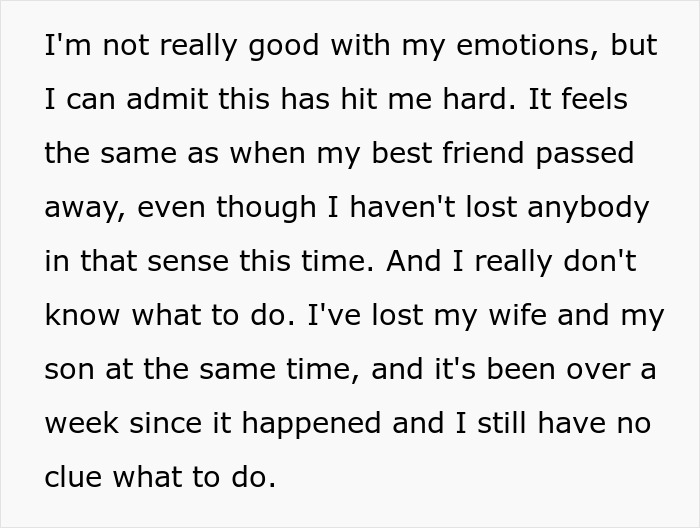
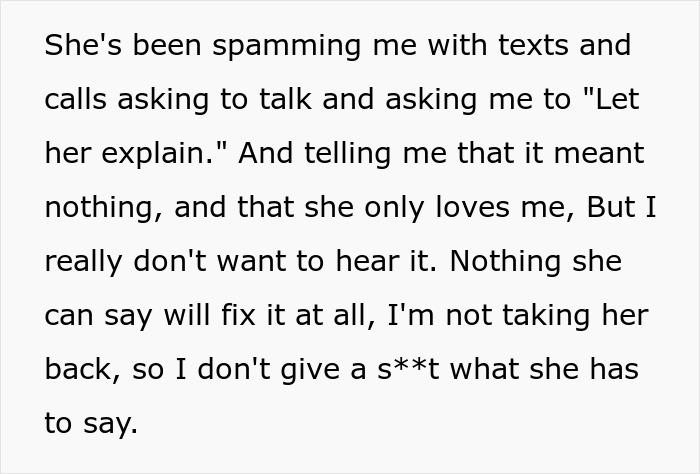
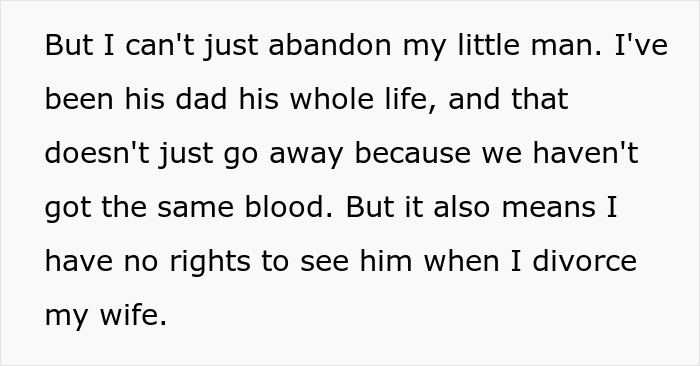
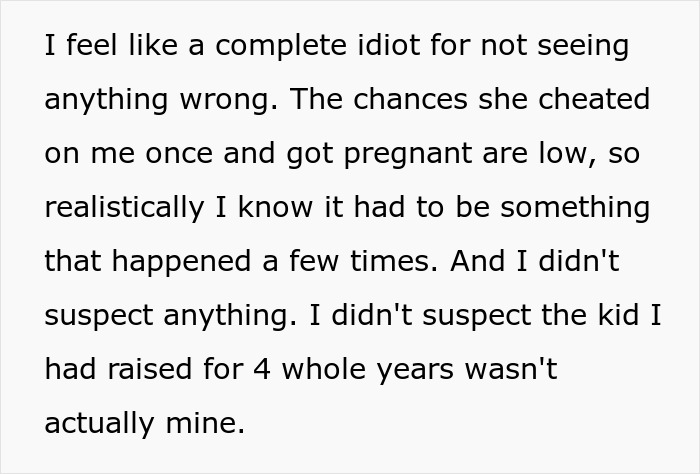

Image credits: ThrowRA66538
He went on to share more details about what happened

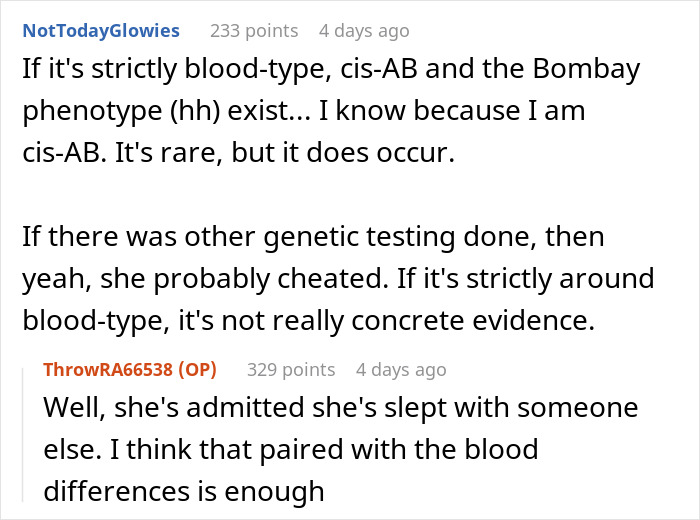
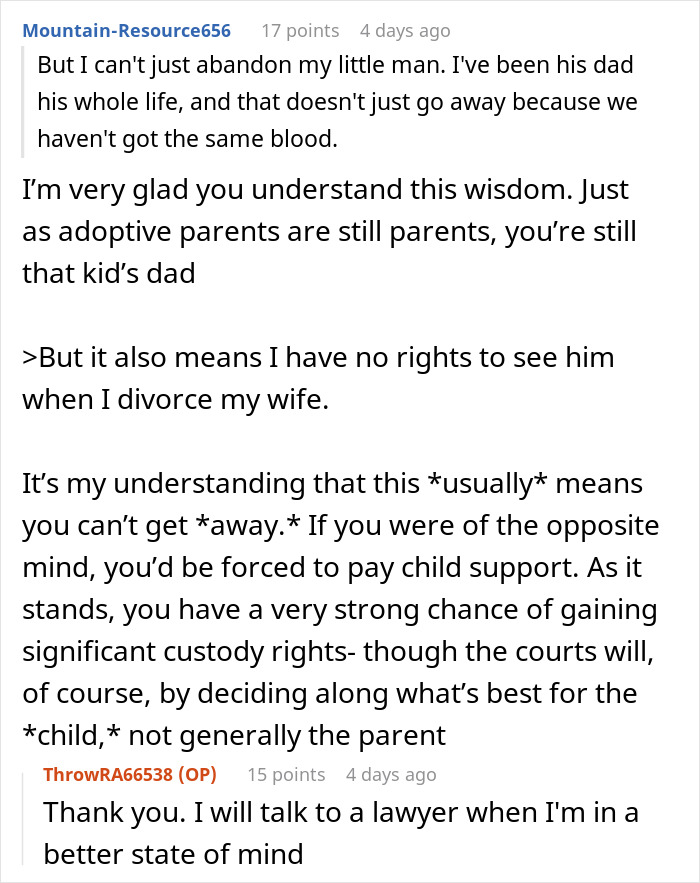
Many people believe white lies are harmless because they seem to protect feelings or avoid conflict
Lies in a relationship can and do happen; it’s human nature. Sometimes, they’re not meant to hurt at all. Many couples brush off the little “white lies” because they feel harmless in the moment. Maybe you pretend to love your partner’s new haircut when you actually don’t. Maybe you say you’re “fine” when you’re really upset but too tired to explain. We all do it, thinking it will keep things smooth and easy. But deep down, even small lies can add up over time.
Here’s the tricky thing about lying, though: no matter the reason, it still stings when the truth comes out. Even if you lied to protect someone’s feelings, that person might still feel betrayed. Research actually shows that even “harmless” lies leave people feeling less close and less connected. So, while lying might seem like an easy fix, it often builds hidden cracks that can break open when you least expect it.
So why do people lie in the first place? One big reason is fear. Fear of conflict, fear of rejection, fear of losing someone you love. Sometimes it feels easier to lie than risk an argument that might turn ugly. You think you’re keeping the peace, but all you’re really doing is delaying the fallout. The problem doesn’t go away; it just gets buried until it blows up later, often when you least want it to.
Another reason people lie is that they want to protect the people they love. They believe a small lie is kinder than a painful truth. It feels like mercy. You don’t want your partner to feel bad about themselves or about you, so you cover up mistakes, hide flaws, or tell them what they want to hear. But even these “good intentions” can backfire because trust is built on truth, and without it, love can feel shaky.
For some, lying isn’t even about the other person; it’s about themselves. Shame and embarrassment are powerful motivators. Maybe they did something they regret or feel insecure about, so they lie to hide it. They’re scared of how their partner will see them if the truth comes out. It’s self-protection, but sadly, it often ends up hurting the very relationship they’re trying to protect.
There are also people who lie simply because it’s what they know. If you grew up in a family where secrets were normal or you learned that lying helped you survive tough situations, it can become a reflex. Over time, it can turn into a habit that sneaks into relationships, even when you don’t mean any harm. But even habitual lying has a cost; it pushes people away and builds resentment.
With open communication and effort, broken trust can sometimes be rebuilt over time
All these lies, big or small, build walls between two people who love each other. Dishonesty can turn tiny misunderstandings into big fights, drain intimacy, and create bitterness that’s hard to shake off. Partners might find themselves second-guessing every word, wondering what’s real and what’s not. It’s exhausting. Over time, it can quietly break what was once a strong bond.
But here’s the hope: if both people truly want it, trust can be rebuilt. It starts with brutally honest communication. You have to be willing to have uncomfortable conversations, say things that sting, and listen without shutting down. It’s about showing up, again and again, and proving you mean what you say now, even if you messed up before.
Self-reflection matters too. Lies don’t appear out of nowhere. It’s worth asking yourself: why did you feel you had to lie? What was missing? What were you scared of? Sometimes, the real work is understanding your own patterns so you can break them for good. Setting boundaries is also important. After dishonesty, you have to get clear about what honesty really means for you as a couple. What’s okay to keep private and what isn’t? Boundaries protect both partners and help them feel safe again.
Therapy can help, too, especially if you feel stuck. A good therapist gives you a safe place to unpack the mess, talk about your feelings without fear, and learn how to be honest even when it’s uncomfortable. Sometimes, an outside perspective makes all the difference when you’re trying to heal old wounds.
Lastly, rebuilding trust takes time and patience. There’s no quick fix for broken trust. It’s all about small, consistent actions that prove the words you say now are true. Being honest. Showing up when you say you will. Owning up to mistakes if you slip up again. Slowly but surely, the cracks can heal if both people truly want to stay and do the work.
In this particular case, the author’s wife hid a huge truth, one that turned his whole world upside down in an instant. Finding out that the child you’ve loved and raised for years isn’t biologically yours is a heartbreak many can’t even imagine. What do you think? Do you believe some lies are unforgivable, no matter the reason? Or is there ever a way back when trust is broken this badly? Share your thoughts below.
Many people online have advised him to seek legal help
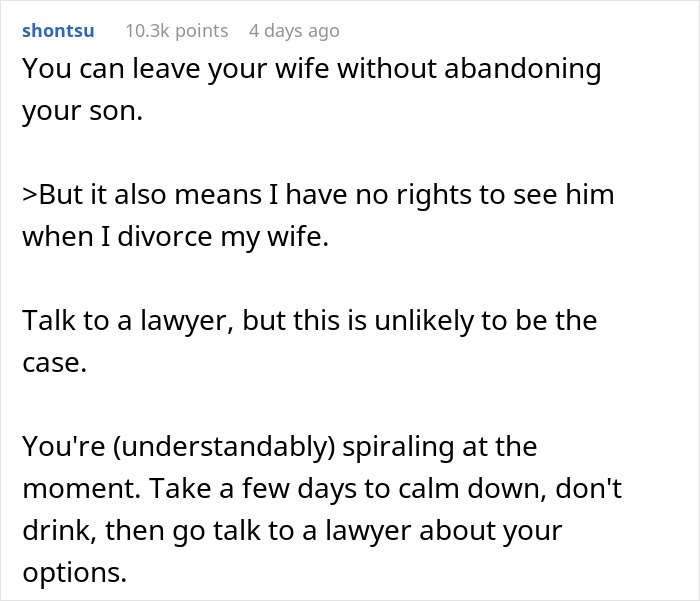

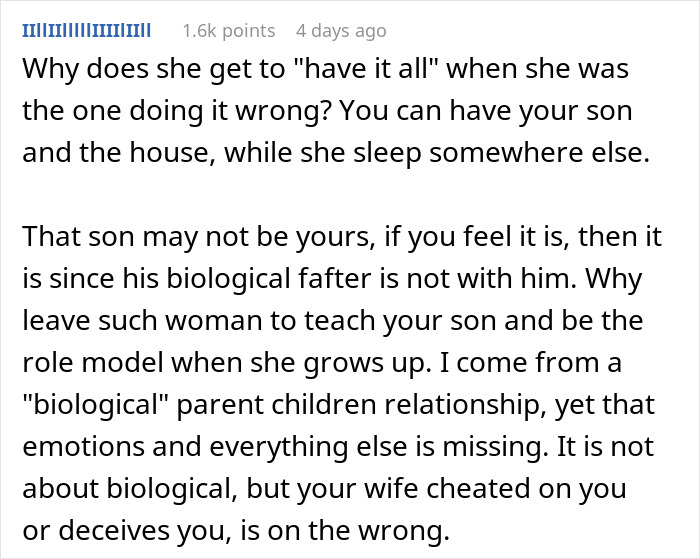



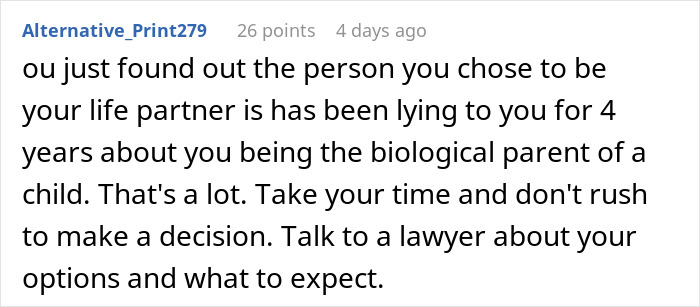
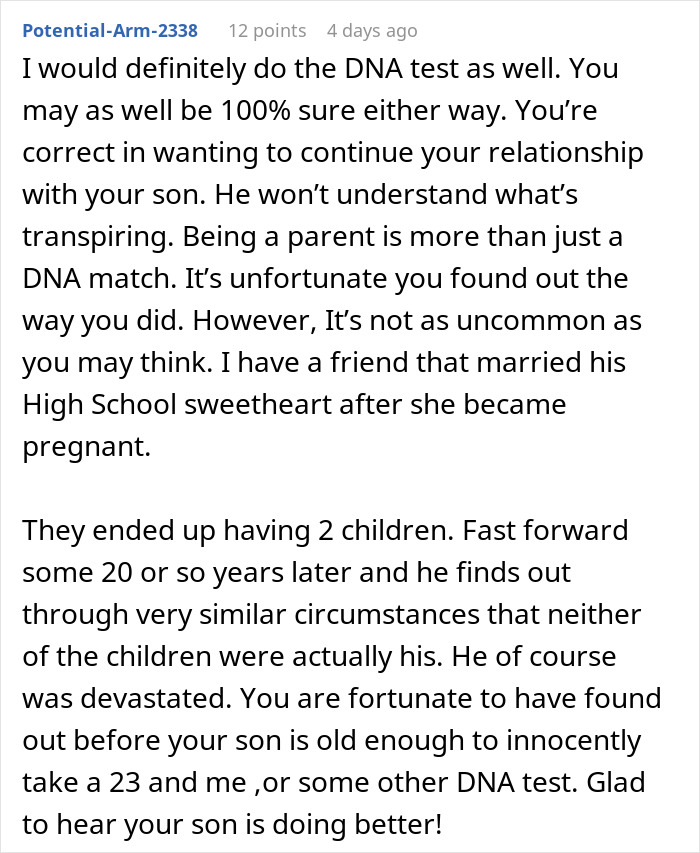
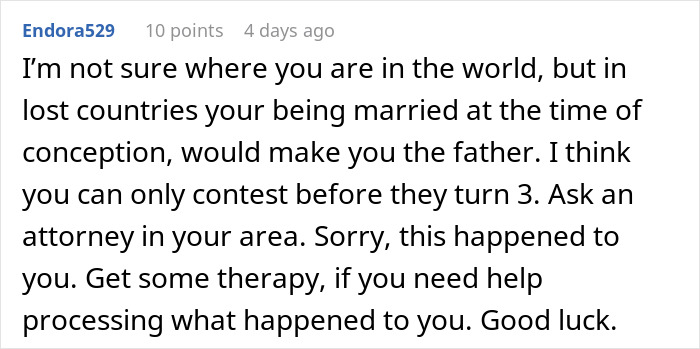

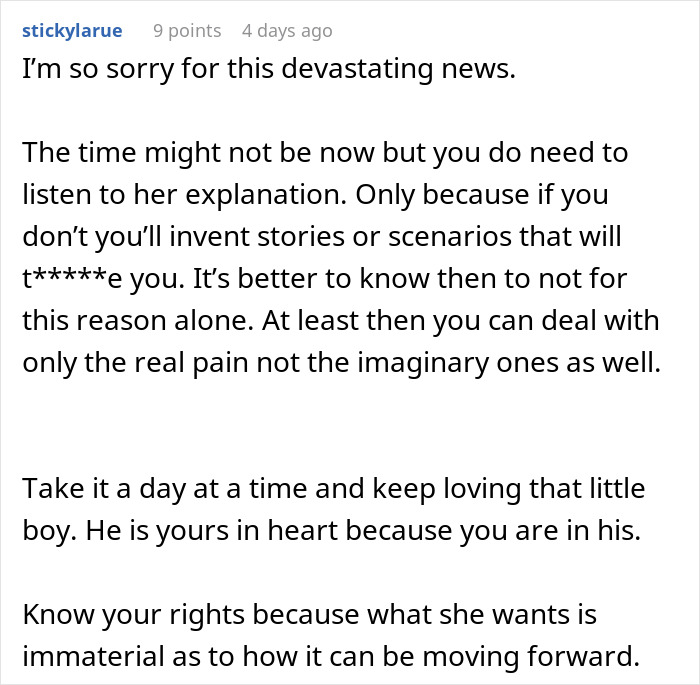

from Bored Panda https://ift.tt/1h2U6Nx
via IFTTT source site : boredpanda